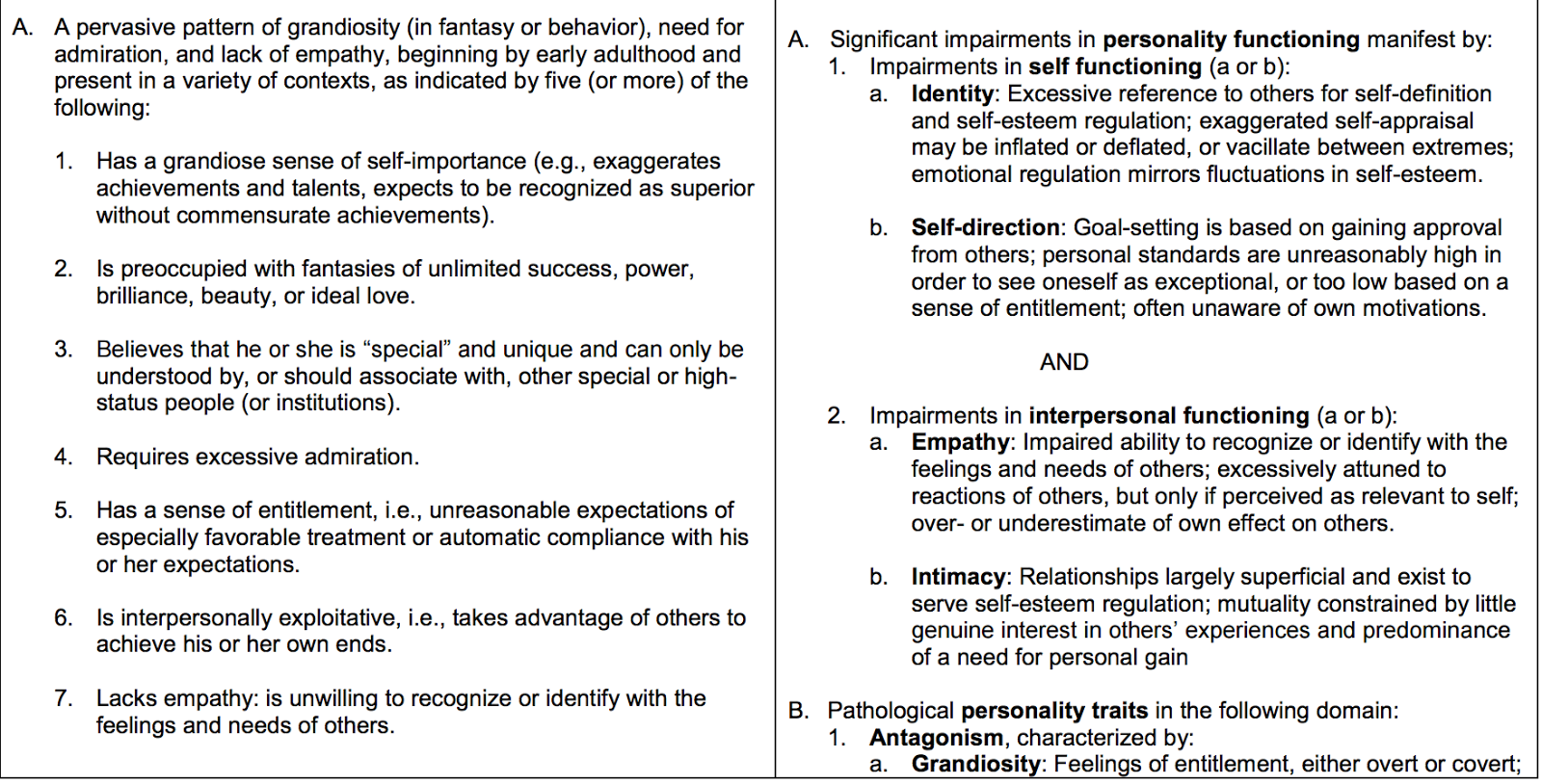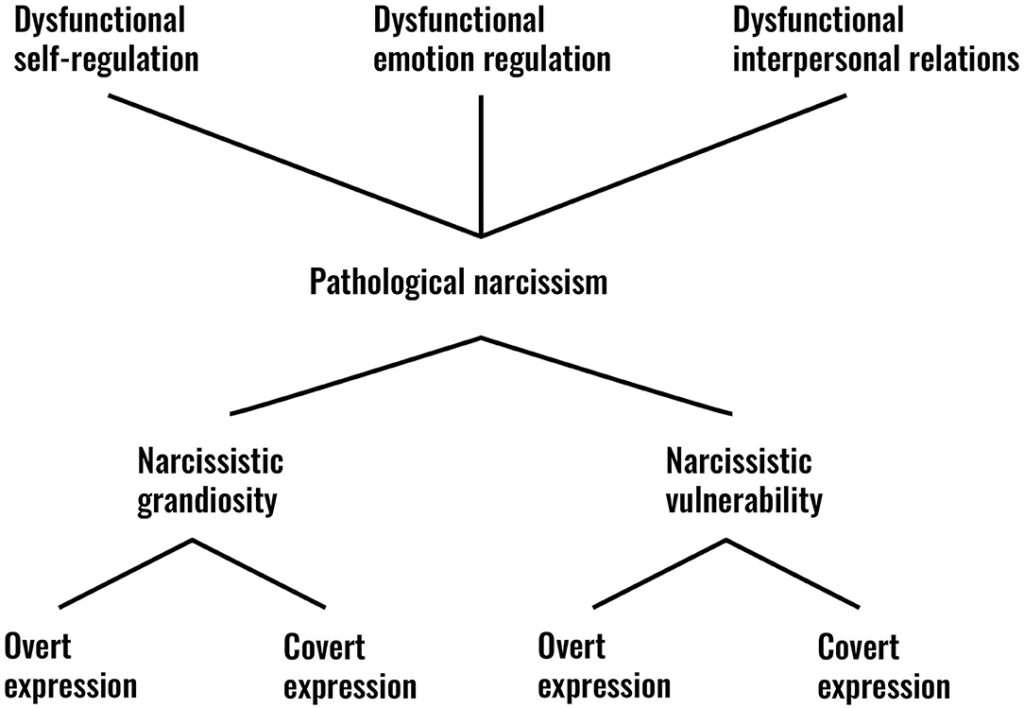Narcissistic Personality Disorder, often abbreviated as NPD, is a complex mental health condition characterized by an inflated sense of self-importance, a deep need for excessive attention and admiration, and a lack of empathy for others. Despite its prevalence in popular culture, this disorder is more than just arrogance or vanity. It can significantly impact relationships, careers, and overall quality of life. In this article, we will explore the definition of Narcissistic Personality Disorder, delve into its key traits, discuss how it is diagnosed, and examine available treatment options.

Understanding Narcissistic Personality Disorder
Narcissistic Personality Disorder is classified as a personality disorder in the Diagnostic and Statistical Manual of Mental Disorders, Fifth Edition. It falls under Cluster B, which includes disorders marked by dramatic, emotional, or unpredictable behaviors. People with this condition often exhibit a pervasive pattern of grandiosity, a constant need for validation, and an inability to recognize or care about the feelings of others.
The term “narcissism” originates from Greek mythology, where Narcissus was a young man who fell in love with his own reflection. While most people display some narcissistic traits occasionally, those with Narcissistic Personality Disorder experience these characteristics to an extreme and persistent degree, causing significant distress or impairment in their daily lives.
Key Traits of Narcissistic Personality Disorder
The hallmark traits of Narcissistic Personality Disorder revolve around an exaggerated sense of self-worth and entitlement. Below are some of the most common characteristics associated with this condition:
- Grandiosity: Individuals with this disorder often have an inflated sense of their abilities, achievements, or importance. They may believe they are superior to others and expect special treatment as a result.
- Excessive Need for Admiration: A constant craving for attention and praise is a defining feature. Without external validation, they may feel empty or worthless.
- Lack of Empathy: One of the most damaging aspects of this disorder is the inability to recognize or care about the emotions and needs of others. This can lead to exploitative or manipulative behavior in relationships.
- Sense of Entitlement: People with this condition often believe they deserve special privileges or treatment. They may become angry or resentful when they do not receive what they feel is owed to them.
- Preoccupation with Fantasies: They frequently indulge in fantasies of unlimited success, power, brilliance, beauty, or ideal love, which serve as a way to escape reality.
- Arrogance: Their interactions with others may come across as haughty or condescending, further alienating them from those around them.
- Enviousness: They may harbor feelings of envy toward others while simultaneously believing that others are envious of them.
How Narcissistic Personality Disorder Affects Relationships
One of the most challenging aspects of this disorder is its impact on interpersonal relationships. The lack of empathy and constant need for admiration can create a toxic dynamic. Friends, family members, and romantic partners may feel used, undervalued, or emotionally drained. Over time, these strained relationships can lead to isolation, as others may choose to distance themselves from the individual.
In professional settings, individuals with this condition may struggle with teamwork, authority, or constructive criticism. Their belief in their superiority can make collaboration difficult, and their sensitivity to perceived slights can result in conflicts with colleagues or supervisors.
Diagnosing Narcissistic Personality Disorder
Diagnosing Narcissistic Personality Disorder requires a comprehensive evaluation by a qualified mental health professional, such as a psychologist or psychiatrist. There is no single test to identify this condition; instead, the diagnosis is based on a thorough assessment of the individual’s thoughts, feelings, behaviors, and history.
Clinical Criteria for Diagnosis
To be diagnosed with Narcissistic Personality Disorder, an individual must exhibit a persistent pattern of at least five of the following criteria:
- A grandiose sense of self-importance.
- A preoccupation with fantasies of unlimited success, power, brilliance, beauty, or ideal love.
- A belief that they are special and unique and can only be understood by, or should associate with, other high-status individuals or institutions.
- A need for excessive admiration.
- A sense of entitlement.
- Interpersonally exploitative behavior.
- A lack of empathy.
- Envy of others or a belief that others are envious of them.
- Arrogant or haughty behaviors or attitudes.
These symptoms must be stable over time and cause significant impairment in social, occupational, or other areas of functioning. It is also important to rule out other potential causes, such as substance abuse or another mental health condition, before making a diagnosis.
Challenges in Diagnosis
One of the primary challenges in diagnosing this disorder is that individuals with Narcissistic Personality Disorder are often reluctant to seek help. They may view therapy as unnecessary or beneath them, or they may blame others for their problems rather than acknowledging their own role. Additionally, their charm and charisma can sometimes mask their underlying issues, making it harder for clinicians to recognize the disorder during initial assessments.
Another challenge is distinguishing Narcissistic Personality Disorder from other conditions with overlapping symptoms, such as bipolar disorder, antisocial personality disorder, or borderline personality disorder. A skilled clinician will carefully evaluate the individual’s history and presentation to ensure an accurate diagnosis.
Treatment Options for Narcissistic Personality Disorder
While there is no cure for Narcissistic Personality Disorder, various treatment approaches can help individuals manage their symptoms and improve their relationships. It is important to note that treatment outcomes depend largely on the individual’s willingness to engage in therapy and work toward change.
Psychotherapy
Psychotherapy, particularly talk therapy, is the cornerstone of treatment for Narcissistic Personality Disorder. Different therapeutic modalities can be effective, depending on the individual’s specific needs and goals. Some of the most commonly used approaches include:
- Cognitive Behavioral Therapy: This approach helps individuals identify and challenge distorted thought patterns and behaviors that contribute to their difficulties. For example, they may learn to replace unrealistic expectations with more balanced perspectives.
- Psychodynamic Therapy: This form of therapy explores unconscious processes and past experiences that may influence current behavior. By gaining insight into their motivations and defenses, individuals can develop healthier ways of relating to others.
- Schema-Focused Therapy: This integrative approach addresses deeply ingrained patterns, or schemas, that developed early in life. It aims to heal emotional wounds and promote personal growth.
Through therapy, individuals can learn to regulate their emotions, develop empathy, and build more meaningful connections with others. However, progress can be slow, as many people with this disorder resist acknowledging their vulnerabilities or flaws.
Medication
There are no medications specifically approved to treat Narcissistic Personality Disorder. However, certain medications may be prescribed to address co-occurring conditions, such as depression, anxiety, or mood swings. Antidepressants, anti-anxiety drugs, or mood stabilizers may provide relief for these symptoms, enabling the individual to focus more effectively on therapy.
Group Therapy and Support Networks
In addition to individual therapy, group therapy can be a valuable component of treatment. Participating in a supportive environment with others who share similar struggles can foster accountability and mutual understanding. Group settings also offer opportunities to practice interpersonal skills and receive feedback in a safe space.
Building a strong support network outside of therapy is equally important. Friends, family members, and mentors who understand the nature of the disorder can play a crucial role in encouraging positive change and providing emotional support.
Lifestyle Changes and Coping Strategies
Beyond formal treatment, individuals can adopt lifestyle changes and coping strategies to manage their symptoms. These might include:
- Practicing mindfulness and stress-reduction techniques, such as meditation or yoga.
- Setting realistic goals and celebrating small achievements.
- Engaging in hobbies or activities that promote self-esteem without relying on external validation.
- Seeking out educational resources to better understand the disorder and its effects.
By taking proactive steps to address their challenges, individuals with Narcissistic Personality Disorder can improve their well-being and enhance their relationships with others.





